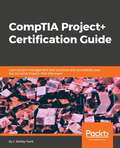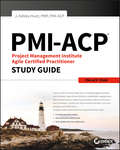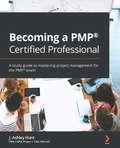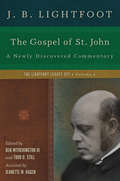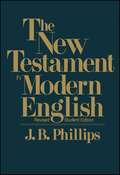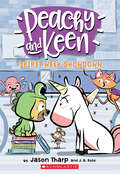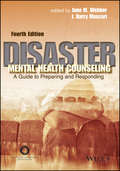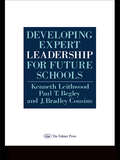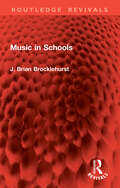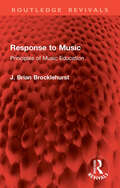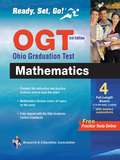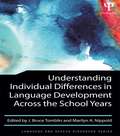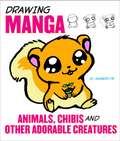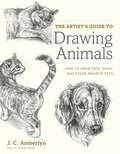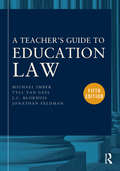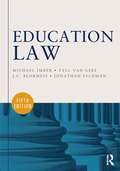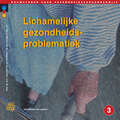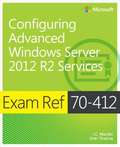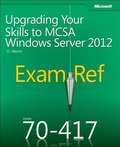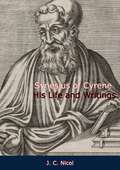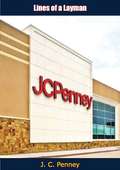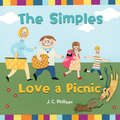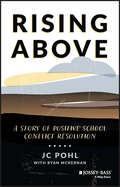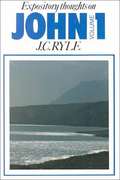- Table View
- List View
CompTIA Project+ Certification Guide: Learn project management best practices and successfully pass the CompTIA Project+ PK0-004 exam
by J. Ashley HuntYour perfect companion to prepare for and pass the CompTIA Project+ PK0-004 examKey FeaturesManage project changes and deliver desired project outcomesGain confidence in passing the PK0-004 exam with the help of practice questionsObtain insight from J. Ashley Hunt, an accomplished subject matter expertBook DescriptionThe CompTIA Project+ exam is designed for IT professionals who want to improve their career trajectory by gaining certification in project management specific to their industry. This guide covers everything necessary to pass the current iteration of the Project+ PK0-004 exam.The CompTIA Project+ Certification Guide starts by covering project initiation best practices, including an understanding of organizational structures, team roles, and responsibilities. You’ll then study best practices for developing a project charter and the scope of work to produce deliverables necessary to obtain formal approval of the end result. The ability to monitor your project work and make changes as necessary to bring performance back in line with the plan is the difference between a successful and unsuccessful project. The concluding chapters of the book provide best practices to help keep an eye on your projects and close them out successfully. The guide also includes practice questions created to mirror the exam experience and help solidify your understanding of core project management concepts.By the end of this book, you will be able to develop creative solutions for complex issues faced in project management.What you will learnDevelop a project charter and define team roles and responsibilitiesPlan the project scope, schedule, budget, and risksProcess change requests and work with procurement documentsClose a formal project or phase and get an overview of Agile Project Management principlesCreate a work breakdown structure (WBS) and dictionaryDiscover best practices for identifying, analyzing, and responding to riskGain important exam information and discover the next stepsWho this book is forThe CompTIA Project+ Certification Guide is for entry-level project managers who are looking for a common language and best practices in the IT project management space as well as a certification to excel in their career.
PMI-ACP Project Management Institute Agile Certified Practitioner Exam Study Guide
by J. Ashley HuntThe ultimate study package for the new PMI-ACP exam The PMI-ACP Project Management Institute Agile Certified Practitioner Exam Study Guide is an all-in-one package for comprehensive exam preparation. This up-to-date guide is fully aligned with the latest version of the exam, featuring coverage of 100 percent of the exam domains. Expanded coverage of AGILE includes the basic principles, value-driven delivery, stakeholder engagement, team performance, adaptive planning, problem detection and resolution, and continuous improvement to align with the A Guide to the Project Management Body of Knowledge (PMBOK® 6th Edition) and its increased emphasis on agile, adaptive and iterative practices. In-depth discussion merges with hands-on exercises and real-world scenarios to provide a well-rounded review of essential exam concepts, while the online learning center provides an assessment test, chapter tests, a practice exam, and study aids to help you ensure complete preparation for the big day. Master 100 percent of the exam objectives, including expanded AGILE coverage Reinforce critical concepts with hands-on practice and real-world scenarios Test your knowledge with challenging chapter review questions One year of FREE access to the Sybex online test bank featuring practice tests, flashcards, a glossary, and more Project management is one of the most in-demand skills in today's job market, making more and more employers turn to AGILE methodologies to enhance delivery and results. The PMI-ACP certification shows employers that you have demonstrated mastery of essential project management skills and a practical understanding of adaptive, iterative processes; this validation puts you among the ranks of qualified project management professionals employers are desperately seeking, and the PMI-ACP Project Management Institute Agile Certified Practitioner Exam Study Guide is your one-stop resource for exam success.
Project Management Professional (PMP)® Certification Study Guide
by J. Ashley HuntThis book is for experienced project managers looking for a common language and best practices in the project management space who wish to gain certification and improve their career growth potential. A minimum of 5 to 7 years of experience in leading and directing projects in a variety of industries will be useful.
The Gospel of St. John: A Newly Discovered Commentary (The Lightfoot Legacy Set #Arrives December)
by J. B. LightfootPreaching's 2017 Survey of Bibles and Bible Reference
New Testament in Modern English
by J. B. PhillipsThe New Testament in JB Phillips' own translation, bringing home to the modern reader the full force of the original message. The full text and introductions of J B Phillips' New Testament in Modern English. Originally written for the benefit of his youth group the demands of others led to the publication of this modern English translation. The language is up to date and forceful, involving today's reader in the dramatic events and powerful teaching of the New Testament so as to bring home the message of Good News as it was first heard two thousand years ago.
Spirit Week Showdown (Peachy and Keen #2)
by Jason Tharp J. B. RoseThe second full-color, illustrated, hilarious title in the new chapter book series by illustrator Jason Tharp.It's spirit week at Happy Tails School and Purrfect9 magazine wants to get in on the fun. Gertie the unicorn wants to start a daily vlog profiling the week and Connie the Octopus thinks a prank channel will get more views. Editor-in-Chief Peachy decides whichever channel has the most total views by the end of the week will get to show their video at the big Pep Rally. It's Peachy and Gertie vs. Keen and Connie--may the best vlog channel win!
Disaster Mental Health Counseling: A Guide to Preparing and Responding
by Jane M. Webber J. Barry MascariThis timely book provides current research and skill-building information on Disaster Mental Health Counseling for counselors, educators, students, and mental health responders in agencies, schools, universities, and private practice. Recognized experts in the field detail effective clinical interventions with survivors in the immediate, intermediate, and long-term aftermath of traumatic events. This extensively revised edition, which meets 2016 CACREP Standards for disaster and trauma competencies, is divided into three sections: Disaster Mental Health Counseling Foundations, Disaster and Trauma Response in the Community, and Disasters and Mass Violence at Schools and Universities. Real-world responses to violence and tragedies among diverse populations in a variety of settings are presented, and responders share their personal stories and vital lessons learned through an "In Our Own Words" feature. Each chapter contains discussion questions and case studies are interwoven throughout the text. Requests for digital versions from the ACA can be found on wiley.com. To request print copies, please visit the ACA website here. Reproduction requests for material from books published by ACA should be directed to permissions@counseling.org
Developing Expert Leadership For Future Schools
by Kenneth Leithwood J. Bradley Cousins Paul T. BegleyBased on the authors' research on the behaviour and thinking of school leaders, this volume presents arguments about the natue of expert school leadership. It parallels developments in the field from the early 1980s when the emphasis was on identifying the behaviours of effective principals, to the early 1990s, when the focus shifted to understanding the thinking underlying those behaviours. The ideas contained in this book should be useful in helping practising educationalists develop the skills involved in school leadership.
Music in Schools (Routledge Revivals)
by J. Brian BrocklehurstFirst published in 1962, Music in Schools discusses all aspects of the teaching of singing in schools. The most effective methods of laying the foundations of musicianship are fully dealt with and ways are considered in which movements, speech, and simple instrumental playing can be used to develop children’s musical literacy, aural perception, and creative ability.Attention is given to the development of children’s taste for, and in, music (including jazz and popular music) and stress is laid on the importance of children as active participants in the appreciation lesson, not simply passive spectators. The place of instrumental music in schools is considered fully and methods of teaching the playing of percussion instruments (rhythmic and melodic), recorders, bamboo pipes, harmonicas, and melodicas are examined. Suggestions are made concerning the formation of school brass bands and piano, string and wind instrument classes; advice is also given on the training and conducting of school orchestras.Other subjects which receive attention include continuity in school music, the value of musical aptitude tests, the use of films and other visual aids, the provision of equipment for music rooms in schools and the place of music in the education of mentally and physically handicapped children.
Response to Music: Principles of Music Education (Routledge Revivals)
by J. Brian BrocklehurstFirst published in 1971, Response to Music deals with the role of music in education, the formulation of aims and objectives, and the relationship between values, aims, and teaching methods. The author examines the relationship of aims in music education to the requirements of our modern technological society and discusses the adaptability of various foreign systems to music education.Particular reference is made to those aims concerned with the development of musical responsiveness: such determining factors as musical ability, aesthetic sensitivity, listening reaction patterns, and attitude are considered and their educational implications discussed. Separate chapters are devoted to the development of musical understanding and skills.
OGT Ohio Graduation Test Mathematics 3rd Ed. (Ohio Graduation Test (ogt) Test Prep Ser.)
by J. BriceEvery student in Ohio must pass the OGT - Are you ready for the OGT Mathematics exam? REA's OGT Mathematics test prep with bonus online tests helps you sharpen your skills and pass the exam! This second edition of our popular test prep provides the up-to-date instruction and practice high school students need to improve their math skills and pass this state-required exam. Based on Ohio's Academic Content Standards for Mathematics, the comprehensive review features student-friendly, easy-to-follow lessons and examples that reinforce the key concepts tested on the OGT mathematics exam, including: * Data Analysis and Probability * Geometry and Spatial Sense * Measurement * Patterns * Functions * Algebra Focused lessons explain math principles in easy-to-understand language that's suitable for students at any learning level. Our tutorials and targeted drills increase comprehension while enhancing your skills. Color icons and graphics throughout the book highlight must-know concepts. Test-taking tips and strategies in each chapter give you an added boost of confidence so you can do your best on the exam. Four practice exams help you prepare for the OGT! The book contains two full-length practice exams that allow you to test your knowledge while reinforcing what you have learned. Two additional practice tests not found in the book are available online - for a total of four exams! Each practice test comes complete with detailed explanations of answers, allowing you to focus on areas in need of further study. Whether used in a classroom, at home for self-study, or as a textbook supplement, Ohio teachers, parents, and students will consider this book a "must-have" prep for the OGT. REA test preps and software have proven to be the extra support students need to pass their challenging state-required tests. Our comprehensive test preps are teacher-recommended and written by experienced educators.
Understanding Individual Differences in Language Development Across the School Years
by J. Bruce Tomblin Marilyn A. NippoldThis volume presents the findings of a large-scale study of individual differences in spoken (and heard) language development during the school years. The goal of the study was to investigate the degree to which language abilities at school entry were stable over time and influential in the child’s overall success in important aspects of development. The methodology was a longitudinal study of over 600 children in the US Midwest during a 10-year period. The language skills of these children -- along with reading, academic, and psychosocial outcomes -- were measured. There was intentional oversampling of children with poor language ability without being associated with other developmental or sensory disorders. Furthermore, these children could be sub-grouped based on their nonverbal abilities, such that one group represents children with specific language impairment (SLI), and the other group with nonspecific language impairment (NLI) represents poor language along with depressed nonverbal abilities. Throughout the book, the authors consider whether these distinctions are supported by evidence obtained in this study and which aspects of development are impacted by poor language ability. Data are provided that allow conclusions to be made regarding the level of risk associated with different degrees of poor language and whether this risk should be viewed as lying on a continuum. The volume will appeal to researchers and professionals with an interest in children’s language development, particularly those working with children who have a range of language impairments. This includes Speech and Language Pathologists; Child Neuropsychologists; Clinical Psychologists working in Education, as well as Psycholinguists and Developmental Psychologists.
Drawing Manga Animals, Chibis, and Other Adorable Creatures
by J. C. AmberlynLearn the Tricks of the Trade for Drawing Irresistibly Cute Manga-Style Animals and Chibis! The world of manga is filled with strange creatures and adorable sidekicks. Just about every manga hero and heroine has an animal mascot, and all the most popular ones have a cute "chibi" form. This book teaches aspiring manga artists how to create the funny critters that populate girls' manga and the more gritty, gothic creatures found in boys' manga. It starts with the basics of creating manga-style characters--everything from drawing heads and faces to eyes and expressions, to creating incredibly cute chibis. Part two features a valuable reference section on the mythological and real animals that have shaped Japanese artwork and stories. The final section has step-by-step demonstrations on using computer programs such as Photoshop and Corel Painter to create manga art and comics. So whether you're just starting out and want to draw a cute, simple mascot, or would like to try something more complex like an Asian dragon, or are ready to create your own otherworldly adventure, this book has something for you no matter what your skill level.From the Trade Paperback edition.
The Artist's Guide to Drawing Animals: How to Draw Cats, Dogs, and Other Favorite Pets
by J. C. AmberlynCreate Classic Portraits of Favorite PetsThe Artist's Guide to Drawing Animals continues the rich tradition of animals in art. In this step-by-step guide to rendering your favorite animals in pencil and pen-and-ink, J. C. Amberlyn combines her love of pets and other familiar domestic creatures with her beautiful, detailed drawing style. Covering a variety of animals from beloved pets like dogs and cats to barnyard critters like cows and sheep and many more, the book covers every species with easy-to-follow instructions for drawing them from every angle imaginable. Along with seven featured examinations of Amberlyn's artistic process, each chapter showcases the tools and techniques needed to produce your own highly detailed, lifelike drawings of a variety of well-known animal companions. The worlds of artists and animal lovers come together in this richly illustrated, in-depth guide to producing charming portraits of some of the most popular pets and domesticated creatures.Also available as an eBookFrom the Trade Paperback edition.
A Teacher's Guide to Education Law
by Tyll Van Geel Michael Imber Jonathan Feldman J. C. BlokhuisAdapted from its parent volume Education Law, 5th Edition, this accessible text concisely introduces topics in law that are most relevant to teachers. Providing public school teachers with the legal knowledge necessary to do their jobs, A Teacher’s Guide to Education Law covers issues of student rights, discipline, negligence, discrimination, special education, teacher rights, hiring and firing, contracts, unions, collective bargaining, and tenure. Special Features: This revised edition includes new content on bullying, privacy, discrimination, school finance, and issues relating to Internet and technology, as well as updated references and case law throughout. To aid comprehension, technical terms are carefully explained and summaries of key topics and principles are provided. Case law is presented within the context of real-world examples, making this text accessible to pre-service teachers who have little background in law. A companion website provides additional resources for students and instructors, such as links to full cases and a glossary of key concepts.
Education Law
by Tyll Van Geel Michael Imber Jonathan Feldman J. C. BlokhuisEducation Law, 5th Edition provides a comprehensive survey of the legal problems and issues that confront school administrators and policymakers today. This textbook is organized around the belief that students need to read court cases to understand the subtlety and richness of the law, but for legal neophytes, cases without discussion and interpretation are often too difficult to comprehend. Thus, the text balances an explanation of the important principles of education law, with actual court decisions to illuminate these concepts. The court decisions are carefully edited to highlight issues most relevant to administrators, and each chapter explores implications for policy and practice. New in the Fifth Edition: Additional content on bullying, student privacy, free speech rights, teacher evaluation, collective bargaining, and issues relating to Internet and technology. Revision of materials dealing with education policy and updating of references and case law throughout. A companion website with materials for students and instructors, including links to full cases, a glossary of key concepts, and discussion questions to help students further engage with the content.
Lichamelijke gezondheidsproblematiek
by J. C. Dito T. Stavast M.J. Zaagman-van Buuren J.T.E. de JongIn dit boek voor kwalificatieniveau 3 is de leerstof geordend in drie delen. Het eerste deel heeft een algemeen karakter en behandelt onder andere aspecten van de geneeskunde, de algemene farmacologie, infectieleer, pijn en algemene oncologie. In deel twee wordt ingegaan op gezondheidsproblemen, geordend naar type zorgvrager. Problemen met de ademhaling, het bewegingsapparaat, de uitscheiding etc. Deel drie tot slot is een capita selecta waarbij ondermeer aandacht voor seksueel overdraagbare aandoeningen. Het boek heeft een nauwe relatie met het boek 'Gezondheidskunde' en het boek 'Lichamelijk functioneren', die beide als ingang de zelfzorg hebben. Bij een belemmering van die zelfzorg zal sprake zijn van gezondheidsproblematiek
Rajneeti Vigyan B.A (CBCS) Sem-III -Ranchi University, N.P.U
by Rashmi Sharma J. C. JohariRajneeti Vigyan text book According to the Latest Syllabus based on Choice Based Credit System (CBCS) for B.A Sem-III from Ranchi University, Nilambar Pitambar University in hindi.
Exam Ref 70-412: Configuring Advanced Windows Server 2012 R2 Services
by Orin Thomas J. C. MackinFully updated for Windows Server 2012 R2! Prepare for Microsoft Exam 70-412--and help demonstrate your real-world mastery of advanced configuration tasks for Windows Server infrastructure. Designed for experienced IT professionals ready to advance their status, Exam Ref focuses on the critical-thinking and decision-making acumen needed for success at the MCSA or MCSE level. Focus on the expertise measured by these objectives: Configure and manage high availability Configure file and storage solutions Implement business continuity and disaster recovery Configure network services Configure the Active Directory infrastructure Configure access and information protection solutions This Microsoft Exam Ref: Organizes its coverage by objectives for Exam 70-412. Features strategic, what-if scenarios to challenge candidates. Designed for IT professionals who have real-world experience configuring Windows Server 2012 R2 services in an enterprise environment. Note: Exam 70-412 counts as credit toward MCSA and MCSE certifications
Exam Ref 70-417: Upgrading Your Skills to MCSA Windows Server® 2012
by J. C. MackinPrepare for Exam 70-417--and help demonstrate your real-world mastery of Windows Server 2012 core infrastructure services. Microsoft Exam 70-417 is an upgrade exam that is a composite of three standalone exams: 70-410, 70-411, and 70-412. Exam 70-417 validates skills related to the core technology features and functionality of Windows Server 2012, from the existing knowledge base of a Microsoft Certified Systems Administrator (MCSA) on Windows Server 2008. Exam Ref is organized by exam objectives and features challenging, what-if scenarios that focus on the critical skills and knowledge measured by the certification exam. When you pass Exam 70-417, you complete the requirements for the MCSA: Windows Server 2012 certification. It also counts as credit toward MCSE: Server Infrastructure and MCSE: Desktop Infrastructure (additional exams required). Objectives include: EXAM 70-410: Installing and Configuring Windows Server 2012Install and Configure Servers Configure Server Roles and Features Configure Hyper-V Install and Administer Active Directory EXAM 70-411: Administering Windows Server 2012 Deploy, Manage, and Maintain Servers Configure Network Services and Access Configure a Network Policy Server Infrastructure Configure and Manage Active Directory Configure and Manage Group Policy EXAM 70-412: Configuring Advanced Windows Server 2012 Services Configure and Manage High Availability Configure File and Storage Solutions Implement Business Continuity and Disaster Recovery Configure Network Services Configure Identity and Access Solutions
Synesius of Cyrene His Life and Writings: His Life And Writings
by J. C. NicolSynesius was a Greek Bishop of Ptolemais and Neo-Platonic philosopher in the Cyrenaica. His writings are perhaps most notable for the tension they reveal between his Christian and Platonist beliefs. "Synesius pursued his higher studies at Alexandria, where he became a devoted disciple of the famous Hypatia, to whom several of his letters are addressed and for whom he entertained a life-long devotion. After serving sometime in the army he settled in his native land, studying philosophy, mathematics, astronomy, everything; farming, hunting, having many a brush with hordes of pilfering Libyans; and every now and then upholding the cause of someone who had undeservedly fallen into difficulties". This kind of life, in every way suited to his tastes and disposition, was interrupted by a mission to Constantinople, the object of which was to present a gold crown to the new emperor, Arcadius, and obtain alleviation of the burden of taxation. Nearly three years he waited for an audience. The all-powerful Eutropius who sold the provinces to the highest bidder was not the man to allow the emperor to be troubled with complaints. Finally, Synesius obtained an audience and delivered his famous oration "On Kingship". He left Constantinople in 400. According to some authorities before, and according to others after, the mission to Constantinople, Synesius visited Athens. He had described the visit in two letters [54 and 135] to his brother, Euoptius. His reason for undertaking the voyage was, he jestingly said, that "a number of people, priests and private persons, had had revelations in dreams that, unless he did so, some great evil would befall him. Then he would escape the present evils and would no longer have to revere people who had been to Athens and regarded themselves as demigods, and those who had not as demidonkeys or mules." Athens was a disappointment. Like a beast that had been sacrificed, only the hide remained. —Catholic Encyclopedia
Lines of a Layman
by J. C. PenneyThe history of America’s commercial growth is highlighted with the names of a few great men whose contributions to their nation have far transcended ability in business, manufacturing and industry. Elbert Hubbard, John Wanamaker—these men were merchant princes in one sense, leaders of thought and belief in another. Through their autobiographical writings and essays, they have given us a rich, poignant, inspiring picture of their fruitful lives and careers. Their words point the way to meaningful, creative, productive and brotherly living.Such a man is J. C. Penney, at once the most successful of our times in business enterprise, and the most inspiring in his personal example of courage, wisdom, and service to fellow men and to God.Faith and fellowship are no mere Sunday things in J. C. Penney’s philosophy. You find a twenty-four-hour-a-day, seven-day-a-week code of Christian living in such pieces as his Six Principles for Daily Living, The Four Square Man, and The Christian and the Social Order. They are “the measure of the man.”You will find LINES OF A LAYMAN more than a book to read, although its almost 200 thoughtful vignettes are fascinating, swift-paced and stimulating. You will find that it is a book to use, even a book to live by. Its pages are charged with meaning; one cannot read them without finding new ways to happiness and creativity.
The Simples Love a Picnic
by J. C. PhillippsThe Simple family's plans for a picnic in the park prove disastrously complex. From the artist and author J. C. Phillipps comes this hilarious little picture book with a big heart to remind us that picnics are just a little about food and a lot about family.
Rising Above: A Story of Positive School Conflict Resolution
by J. C. Pohl Ryan McKernanTransform your school’s culture for the better In Rising Above, we meet Serenity Springs High School’s new school counselor Monica Sheppard as she is fielding a barrage of school conflict issues coming at her from what seems like every direction. Backed by a team of veteran school culture experts from different facets of education, author JC Pohl delivers an engaging, ripped-from-the-headlines narrative about a fictional school community devolving into chaos. With social media running out of control, teachers feeling burnt out, and a principal that has simply lost her way, Monica immerses herself into the school community and strives to bridge many of the divides that define contemporary school environments across the United States. The book includes insights from real-world experts, including Principal Dr. Pete Getz, relationship expert Emil Harker, LMFT, and school counselor educator Dr. Stephanie Eberts. It also offers: A comprehensive set of strategies and tools to help cure the ailments destroying school culture Insightful discussions of teacher-student, teacher-teacher, teacher-administration, teacher-parent, teacher-staff, and student-student conflict management and resolution A compelling narrative of a school leader rising above the chaos that surrounds her and showing readers a tangible pathway that leads to positive school conflict resolutionAn engrossing and essential read for principals, assistant principals, school counselors, and other district administrators, Rising Above also proves invaluable to K-12 teachers and higher education professors with an interest in building exemplary school cultures.
Expository Thoughts on the Gospels: John, Volume 1
by J. C. RyleExposition of the first part of the Gospel of John.
